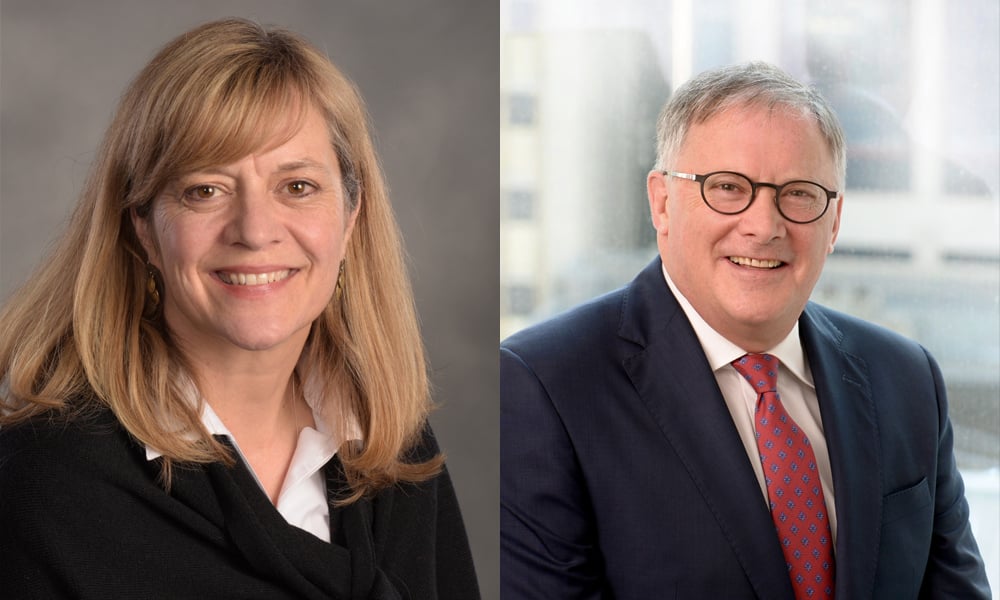Ken Fredeen and Cheryl Foy invite in-house lawyers to submit their ethical dilemmas anonymously

We’re offering this advice column to support you as you tackle ethical and professional issues. Click here to submit your questions anonymously.
QUESTION: “I'm interested in your thoughts on the actions of the Amazon GC and his involvement in the firing of a whistleblower.”
SUMMARY: Amazon GC David Zapolsky wrote a memo following an executive meeting in which he recommended tactics for discrediting a recently terminated employee and deflecting criticism from Amazon. The memo was leaked, became public and has been the focus of several articles.
FREDEEN: A one-page column can’t do this topic justice. Without all the facts, it’s not fair to comment on any of the cases where GC squirm in the glare of public and regulatory scrutiny. The old saying “There but for the grace of God go I” certainly applies here. None of us is perfect. Having said that, we all need to pay attention, learn from these cases and consider this: What would we have done differently?
The role of GCs is complex and multi-dimensional and, before we give advice, we must always assess four key things:
- Our knowledge of the facts and the law
- Our awareness of the broader context in which the advice is given
- The interests of key stakeholders such as regulatory, employee and public perception
- Our ability to bring a calm and rational perspective
I focus on these things for a reason. The expectations of a GC, particularly in a crisis, are great. GCs need to be generalists — to be valuable to management we need to know a lot about a lot. Each time we give advice, we have to ask ourselves those four questions.
A forceful boss, an emotional issue, government and public interest, the application of scrutiny on other topics (use of dominant position or unsafe workplace allegations, as examples) all create a flash point for danger. Giving advice from a corner, the pressure of time, the need to act, not having all the facts, not understanding the law or the larger context and risks pressure us to go a certain direction against our better judgment and put the GC into a dangerous position — a position in which their advice falls short, gets the client into trouble and compromises the GC’s own reputation.
What comes to mind is this: GCs serve the organizations that employ them. They need to consider many things before giving advice to their client. They need to have the confidence to step back, reflect, ask more questions — even when the pressure in the moment to act is high. Not being popular with the advice given in that moment might indeed be the right advice for the long term.
FOY: When we read stories about fellow GCs, we must acknowledge that we don’t have all the facts. As Ken notes, when you’ve been doing this job for a while, you can think back on situations in which you may have given advice you have now reconsidered or may have been tempted to act in a way contrary to your values. These are all cautionary tales. I agree with Ken’s perspective and have two additional observations:
- Disengage the ego: In each of our workplaces, there will be people we don’t like, people who irritate us or cause us repeated hassles. These people will challenge us and will tempt the worst parts of ourselves. If we’re lacking in self-awareness, we may allow them under our skin, and it may become a battle of egos. If we do, our objectivity and the quality of our advice will suffer.
- There is no “them” for in-house lawyers: We can’t become buddies with our clients. As heady as it might be to sit in the presence of a Jeff Bezos and feel like the “in crowd,” GCs can’t be drawn into that. We are not doing our jobs if we lose perspective, if we get drawn into the emotion of the room or want to be part of the cool crowd. Zapolsky’s comments had a ring of “us versus them.” For a lawyer who is considering the perspectives of all stakeholders, there is no them.” Zapolsky admitted that his words were written in frustration. Frustration should have no part in our advice and, when we are frustrated, we should step back and centre.










